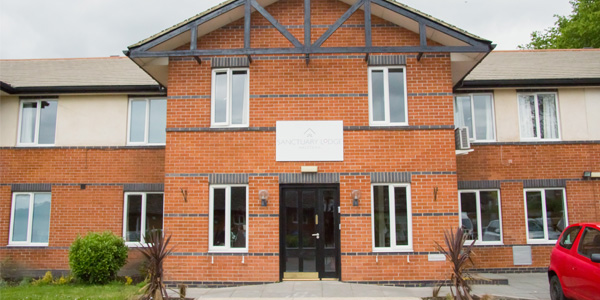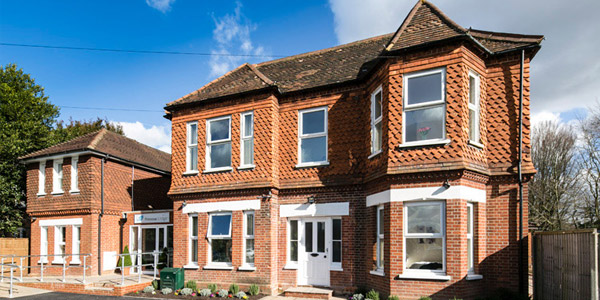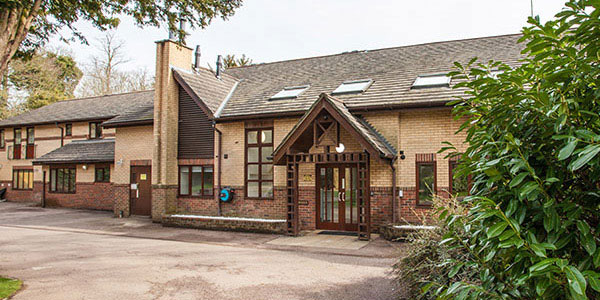Addiction Helper in Harrow offers a variety of treatment options for the recovery from alcoholism, drug addiction, alcohol dependence or drug use disorder. We offer information directory services regarding private and residential detox and rehabilitation in The London Borough of Harrow, which is a North West London Borough, in England. The London Borough of Harrow is in Greater London, and a part of the capital city of England, London.
The administrative headquarters of the London Borough of Harrow is in Harrow itself, towards the centre of the Borough. Harrow postcodes include HA, NW, and UB. Harrow is split into a number of wards which include Pinner, Pinner South, Rayners Lane and Roxborough to the west. If you are living in a district, neighbourhood or area of Harrow, London and are not sure if there is a provision of local drug and alcohol services which manages drug intoxication and withdrawal symptoms including medical alcohol and medical drug detox then call us.

Liberty House Clinic is a fully furbished detox and rehabilitation facility…
- Private
- Holistic Treatment
- Award Winning
- Residential
UKAT Rehabs
Sanctuary Lodge is a state of the art detox and rehabilitation facility, se…
At Primrose Lodge we genuinely care that our patients make a full recovery …
Banbury Lodge is a private UKAT rehab facility based in Banbury, Oxfordshir…
-
- 12 Step
- Group Setting
- Free
- Outpatient
-
- 12 Step
- Group Setting
- Free
- Outpatient
-
The William Carey Room
South Harrow Baptist Church
270 Northolt Road
HA2 8EB0 review- 12 Step
- Group Setting
- Free
- Outpatient
-
- 12 Step
- Group Setting
- Free
- Outpatient
- Load More
Drug & Alcohol Rehab Services in London
- A
- B
- C
- D
- E
- F
- G
- H
- I
- J
- K
- L
- M
- N
- O
- P
- Q
- R
- S
- T
- U
- V
- W
- X
- Y
- Z
What Is Rehab?
Residential rehabilitation – more commonly abbreviated to “rehab” – describes the process by which an addict is treated at a dedicated facility, and is also the name given to such a facility itself (hence the phrase “going to rehab”). In rehab, clients typically undergo two main phases of treatment: firstly, detoxification (“detox”) and withdrawal, with assistance from a medical team (which may include the provision of certain medicines to alleviate the worst effects of withdrawal symptoms); and secondly, once detox has cleansed the addict’s system of substances of abuse, a period of therapy designed to reveal and address the root cause/s of their addiction.

This treatment – combined (in a unique personalised treatment plan for each client) with other elements including dietary and fitness regimes into one holistic approach – takes place in a secure, tranquil, (usually) aesthetically attractive and (crucially) confidential setting, perfectly conducive to introspection and contemplation on the part of the client who is thus able to focus wholly on their recovery.
There is a broad consensus that rehab is the most effective approach to treating addiction, in terms of its ability to provide a platform upon which an addict can build a permanent recovery: the combined focus on both short-term (physical dependency) and long-term (psychological addiction) challenges, under one roof and in one cohesive treatment programme, generally has a more positive outcome than other treatment models, and as a result in mainstream culture “rehab” has now effectively become synonymous with addiction treatment.
How Can I Get Someone into Rehab?
If you or a loved one are struggling with addiction, it is not mere hyperbole to state that every day counts when it comes to reaching out to help: the longer an addiction goes on, the greater the chance that it will end in tragedy as a result of a fatal overdose or an accident. However, treating someone who is not ready to be treated – who does not truly want to stop abusing alcohol and/or drugs – is a futile endeavour almost guaranteed to end in failure, so it is absolutely vital to develop the right mindset as quickly as possible.
This is one point at which we can step in: we can help arrange interventions for addicts who have not yet proven themselves able to admit to their condition, and for those who have and are reaching out to help we can assist in making the necessary preparations before heading to rehab.
The NHS can provide high-addiction treatment services – yet with demand already so high and growing across the country, waiting lists can be extremely long with no guarantee of a place. As noted, time is of the essence – so if you’re in Harrow and are ready to reach out for help, call us to speak with an addiction specialist about some of the private options which may be available to you.
Advantages of Private Rehab
Rehab provides the perfect combination of security, tranquillity and confidentiality within which to focus fully upon recovery away from the distractions and temptations of the environment within which you have fallen into the addiction trap – and away also, of course, from the substance/s of abuse to which you have become addicted.
A highly skilled and experienced medical team will assist you throughout your stay in rehab, from your initial assessment, into detox (during which you will be monitored for your safety, and medication may be prescribed to alleviate as fully as possible any withdrawal symptoms you may experience) and subsequently into therapy.
A broad variety of therapy models (in both group and one-to-one settings) are available at rehab, aimed at uncovering the fundamental reasons for your addiction (and addressing them) and providing you with the necessary psychological defence mechanisms against relapse. Your individual treatment plan will encompass bespoke dietary and fitness regimes, while you will also have access to an array of other facilities (which will vary from one rehab to another and according to the level of treatment which you have requested).
Because recovery is by no means complete at the end of a stay in rehab – it is instead a lifelong process requiring constant dedication and diligence – good rehab providers offer free aftercare (typically for up to a year following your stay) to continue supporting you during this next crucial phase of your recovery.
What Does Rehab Cost in Harrow?
The cost of private rehab can vary significantly by treatment programme, and depending on which of a variety of optional extras are selected. As a rough guide, standard costs range from between £5,500 and £11,000 per month, though the cheapest rehab treatment can start from as little as £834 per week. For more details, call one of our advisers.
NHS Addiction Treatment Options in Harrow
If you feel that private rehab is currently not an option for you for reasons of cost, or if you do not feel that you are able to spend the required time away from family and/or work obligations, do not despair: various NHS and charity resources can be found in Harrow and across Greater London which can help you combat your addiction. Consult your GP about which of these resources may be available to you and would be most appropriate for your specific situation.
Advantages of NHS Treatment
The most obvious advantage of going down the NHS route for addiction treatment is one of cost: while private rehab entails a financial cost, NHS services are free at the point of use. The NHS also has a geographical advantage in that it operates right throughout the UK, while some rehabs are significant distance from Harrow (though this may in fact appeal to some addicts who wish to be as far as possible from their daily temptations). Generally speaking the standard of NHS services is very high, though quality does vary from one NHS trust to the next (and as noted waiting times can be a huge problem).
Addiction Support Groups
There are various organisations providing assistance to recovering addicts in the UK, and some of these operate a support group model. Support groups are made up of individuals who themselves are recovering addicts, who come together regularly at meetings – usually free to attend, with the only qualifying criterion being a commitment to lead a substance-free life – to give and take mutual support in the form of advice, solidarity, sympathy, and the companionship which can be so important when someone is struggling with the challenges of recovery and perhaps with simple loneliness.
The most famous support group organisation – and the model for most others – is Alcoholics Anonymous (AA); founded in 1935, AA runs on a 12-step programme of personal and spiritual development. Narcotics Anonymous (NA), founded in 1953, caters to recovering drug addicts specifically and is based directly upon the AA model.
Supporting those recovering from addictions to specific substances, again based on AA’s 12-step model, are Cocaine Anonymous (CA), Heroin Anonymous (HA), Marijuana Anonymous (MA) and Crystal Meth Anonymous (CMA). Support groups such as Al-Anon and Nar-Anon, meanwhile, help the families and friends of addicts, and typically hold meetings alongside those for the addicts themselves.
Support groups typically meet weekly, though each local chapter is managed independently and meeting times and venues are subject to change. To find information on meetings in or near Harrow, see the relevant websites:
Alcoholics Anonymous; Narcotics Anonymous; Cocaine Anonymous; Heroin Anonymous; Marijuana Anonymous; Crystal Meth Anonymous.
Types of Counselling

Some people who have completed a treatment programme in rehab want the security of ongoing professional assistance during the next phase of their recovery – even potentially for several years afterwards. On the other hand, some addicts who have not yet been through rehab, but who intend to do so and who wish meanwhile to manage their addictions, desire a similar level of professional health. For these two groups – and indeed for any recovering addicts with especially busy schedules who want the ability to access support as and when they require it – one especially useful model is individual counselling.
Private addiction counsellors work rather like regular psychotherapists, in that they can be seen by private appointment (perhaps on an ongoing – typically weekly – basis, or maybe less regularly) charging a fee per such appointment. Private addiction counsellors can be found right across the UK – with a great many active in Greater London – offering a broad variety of therapy models and approaches to treatment. Usually such counsellors will be available only during set working hours but some may make themselves available in emergencies.
Reaching Harrow in London
The borough of Harrow is found in north-west London. Its neighbouring areas are Barnet, Brent, Ealing, and Hillingdon, and it has 21 wards and districts. This borough’s northern border forms a part of the London northern border.
The Harrow wards are: Belmont, Canons, Edgware, Greenhill, Harrow on the Hill, Harrow Weald, Hatch End, Headstone North, Headstone South, Kenton East, Kenton West, Marlborough, Pinner, Pinner South, Queensbury, Rayners Lane, Roxbourne, Roxeth, Stanmore Park, Wealdstone, and West Harrow. If you have to drive around the borough, keep in mind that there are a number of useful large roads to use for quicker access – the A312, the A409, the A4005, and Uxbridge Road. At the same time, if you consider using public transportation, the local stations are serviced by the National Rail, the London Overground and the London Underground. The following are active Harrow-based stations: Canons Park, Hatch End, Pinner, South Harrow, West Harrow, North Harrow, and Sudbury Hill.
There are multiple opportunities for your relaxing rehab-focused outings. They may be part of the holistic therapies some rehabs in the area provide. Found in the borough are the Northala Fields, the Headstone Manor, the Brent Reservoir, and the Headstone Manor Museum.
How to Get to Liberty House Clinic from Harrow
Liberty House Clinic is a fully furbished 18-bed drug and alcohol detox and rehabilitation facility in a peaceful, picturesque suburban setting in the heart of Luton. Its large, spacious grounds are the ideal place in which to address the key questions at the heart of recovery from addiction, and to embrace its fully comprehensive rehabilitation programme focused on mental, physical and spiritual well-being.
To get to Luton from Harrow by road, head out on Harrow View to Courtenay Avenue and thence to the A4008. At Lower High St take the A411, but return to the A4008 at Stephenson Way before merging onto the M1. Stay on that motorway until junction 10; then take the A1081 towards London Road; follow signage to the town centre.
For those preferring to travel by train, Luton is served by Thameslink; from Harrow & Wealdstone either head to London Euston and then walk/bus to London St Pancras to take a train direct to Luton; or go to Willesden Junction, take the Overground to West Hampstead, and then a Thameslink to Luton.
Liberty House Clinic
220 Old Bedford Road
Luton
Bedfordshire
LU2 7HP





